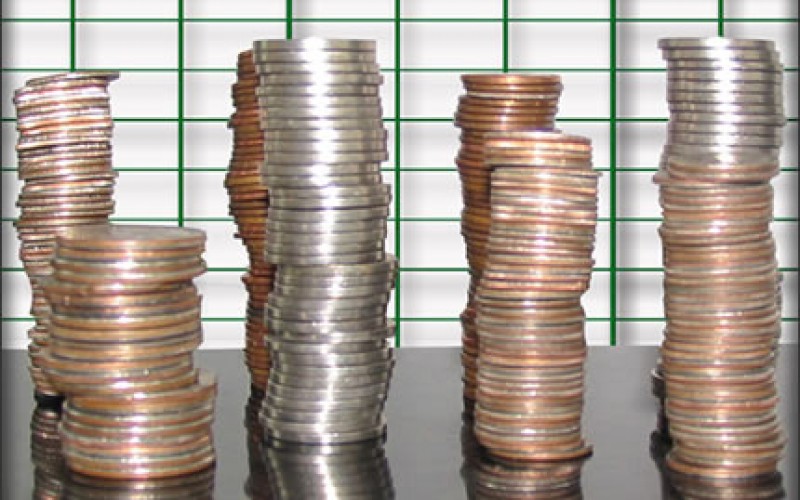Did you get a raise this year? Congratulations — too many people are sitting on wage freezes or have had their hours cut back. When money is tight, finding ways to trim costs is important. We’ll take a look at a number of ways — large and small — where you can save money.
1. Eat out less often. Dining out can be enjoyable, but it also can be expensive. Add up the number of times that you eat out in a year and resolve to cut that back by at least 10 percent. You still get to enjoy eating out, while saving money too.
2. Try meatless meals. Chicken, pork and beef are tasty, but expensive. You may not be ready to become a vegetarian, but you could possibly stand not eating meat as often as you do. Cook up some vegetarian meals from time to time.
3. Just bag it. Buying your lunch at work can quite easily cost you from $5 to $10 per day. Instead of buying daily, weave in the brown bagged lunches that you make to order. You will eat healthier and you may lose weight too.
4. Buy your food in bulk. Where possible, buy your food in larger quantities to pay less per ounce. Packaged foods will cost you a mint, while food that you prepare from scratch will save you money. Develop a food storage system that can help you maximize your food savings.
5. Replace drinks with water. Children should have milk and the occasional fruit drink is fine too. Water, however, is the best drink for your body, a no-calorie and low-cost way to sate your thirst. Avoid the bottled water — instead, invest in a water purifier to enjoy tasty water all the time.
6. Bundle your services. Bought separately, you will pay more for your phone, cable and Internet service than you would if you bought these services from one provider. Shop around for the best deals — consider ditching your landline if your rely on cell phones exclusively.
7. Install ceiling fans. You can help maintain the flow of air and the distribution of heat in your home by installing ceiling fans in select rooms. Operate these fans in conjunction with your HVAC system and you can optimize your climate control while saving you cash.
8. Run your appliances at night. Your utility company charges your different rates at different times of the day. If you wait to run your dishwasher or washing machine until after 7 p.m., you’ll pay a lower rate. Also, wash your clothes in cold water as it is the detergent, not the temperature of the water that cleans your clothes.
9. Opt for generic prescriptions. If you are on medication, ask your doctor about the generic equivalent. Shop at a pharmacy that offers one, low discounted price for prescriptions.
10. Use rechargeable batteries. You will pay through the nose for batteries, but you can save money if you invest in rechargeable batteries and use those for your TV’s remote, for your gaming system and for other devices. Invest in a quality recharger to get hundreds of hours of battery use out of one battery pack.
11. Build a compost pile. Food scraps, newspapers and even human hair can be reused if placed in a compost pile. The “dirt” you make by adding in leaf and grass clippings can be used in your gardens and to fill brown patches on your lawn.
12. Cancel your subscriptions. If you still have magazines and newspapers delivered to your home, cancel your subscriptions. You can still read what you want online and discover other sites (like this one) that impart valuable information at no cost to you.
13. Buy on the off season. Get in the habit of buying what you need when it is out of season. For instance, buy your winter clothes when stores are stocking up for the summer. Check the discount and clearance racks to find the out of season savings.
14. Trade your clothes. Get with other families of young children and trade your clothes. Children often grow out of what they wear faster than they can wear these items out. Your church, your homeschool group or your neighborhood association are good places to meet up with like-minded people to start a clothing exchange.
15. Just fix it. If it is broken, should it automatically be discarded? Consider fixing what you have instead of replacing it. For instance, a new car may cost you $300 a month in car payments, while repairing your existing car may cost you $1,500, a difference of $2,100 for one year alone.
16. Control your credit cards. Credit card debt will hurt most any household budget. Resolve to pay down this debt faster and transfer your balances to low interest rate credit cards.
17. Bundle your trips. Higher gas prices are here to stay. And buying a new, fuel efficient car is not an option for any people. Extend the life of your car by driving it less often — when you need to make a trip, combine your errands. Head to the post office, to the hardware store and to the food store in one trip. You’ll cut back on the miles and use your car only when you need to.
18. Use cruise control. When you are driving at highway speeds, set the cruise control and take your foot off of the gas pedal. The U.S. Department of Energy says that you will save gas by as much as one-third when using cruise control.
19. Just reuse it. Much of what we have in our homes can be reused for other purposes. Grocery bags can be used as bathroom trash bags. Old food can find its way into your compost heap (except for dairy products and meats). Old bathroom shower hooks can be used as closet bag holders. An unused shoe rack can be repurposed as a pantry organizer. Consider what other purposes your items can serve and do these as well.
Saving Money
Individually, the tips shared here may not save you much money. Collectively, however, you may be able save much more, easily offsetting your rising home expenses and reduced income levels.
See Also — Consumer Credit Repair Done Right
end of post idea for home improvement
view and analyze home improvement ideas at our LetsRenovate center
Helpful article? Leave us a quick comment below.
And please give this article a rating and/or share it within your social networks.











